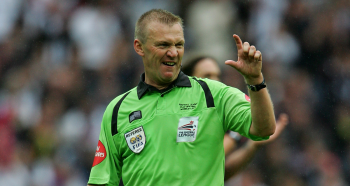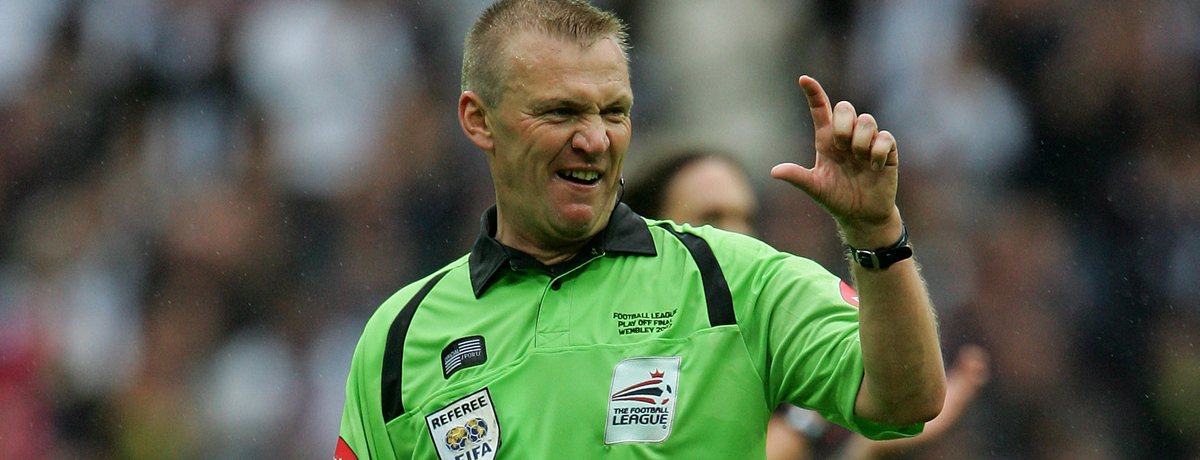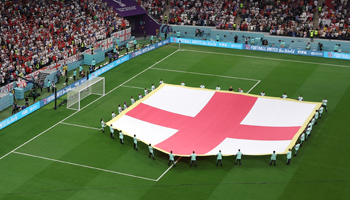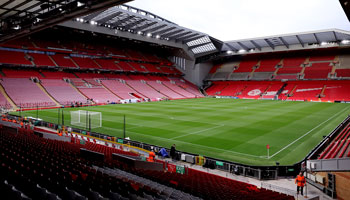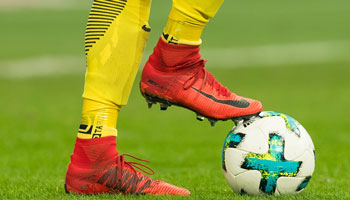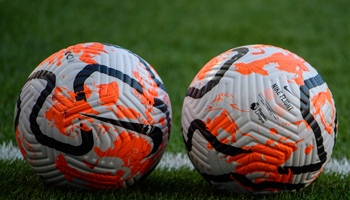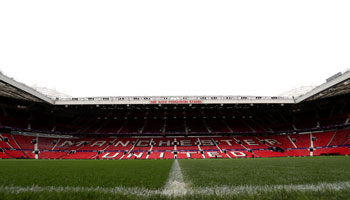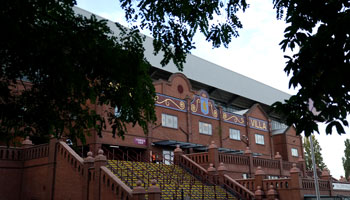With Jose Mourinho in full meltdown mode, Diego Costa trying to get sent off every week and more diving seen on Premier League pitches than a Tom Daley training session – it’s hard to imagine why anyone would want to be a referee.
Now retired, Graham Poll did, and – though some readers will be loath to admit it – he was a very good one. He is still considered the best English referee in the last 25 years according to the International Federation of Football History and Statistics.
The QPR supporting ‘Man in Black’ is used to being in charge, but today it’s news.bwin posing the questions to the ex-official.
From proactively disciplining Jose Mourinho to reintroducing post-match interviews, Poll is not backward in coming forward and though he might lack the creativity of Xavi, Iniesta or Scholes – he’s a very interesting man in the middle.
Poll on Mourinho
Mourinho’s histrionics have been something a two-year-old would be proud of this season and despite the FA hitting him with harsh sanctions, Poll believes that the punishment on Mourinho was not enough for a lasting impact.
“The FA stadium ban is harsh – it’s more severe than a touchline ban and coupled with the £50,000 fine it’s a very harsh punishment, but that’s all it is – it’s not a deterrent.
“I would favour a more proactive approach because the ban is served and then exactly the same thing happens again.
“What exactly this proactive approach looks like, I’m not too sure – but we need to have something that educates and mitigates against human error.”
On improving relationships and intimidation
Football fans have become used to seeing players crowd a referee after a decision and while Poll believes this to be a largely fruitless endeavour, his explanation as to why is eye-opening.
“I would welcome the chance to have a more open dialogue with managers and teams at the start of the season to get a broad ‘rules of engagement’ established.
“There is no doubt that managers encourage and, in some cases, actively install aggressive behaviour towards referees. You only have to see the co-ordinated nature of the ‘surge’ at referees to appreciate that.
“On the flip side, teams managed by Brian Clough and subsequently Stuart Pearce were always completely respectful and you knew they would be before the game.
“Perhaps unsurprisingly, I’d encourage managers to welcome referees to the game and create a nicer, more friendly environment.
“Referees are human and whether you are in the office or on the pitch, when you are under intense pressure – you make more mistakes.
“When players are looking to intimidate you, they know they’re not going to change your mind on that decision – they’re aiming to make sure you give them the next one, or don’t penalise them again.
“In reality, it just cranks up the pressure – you will never get favouritism from referees, just right or wrong decisions. If more pressure leads to more wrong decisions, then I’d say a relaxed referee is more likely to make more right ones.”
On the refereeing standards in the Rugby World Cup
For most, the standard of refereeing in rugby is always compared favourably with the standard of refereeing in football – a comparison that Poll is keen to contest.
“Rugby referees are no better or no worse than football referees – the differences are in the rules provided from the top and the nature of the game itself.
“The former are able to exert control via the sin-bin and football referees simply don’t have that tool. Similarly, the game of rugby is naturally more stop-start than football, which provides a better atmosphere for video refereeing.
“Football, and especially in the Premier League where the speed of the game is such a selling point, does not accommodate delays as well as Rugby.
“Adding to that, we saw in the semi-final between Australia and Scotland that the video refereeing isn’t without its flaws either. The referee has made a decision that he can’t refer to the video referee, the laws of the game have locked it in.”
Despite this, if Poll could invent one new rule and introduce it to football, it does borrow heavily from Rugby.
“I would love to see football adopt a sin-bin, especially for abuse of officials. It would put the teams at an immediate disadvantage and effectively send a message that if you disrespect and official, you and your team will feel the repercussions.
“I would also insist that the player apologises before returning to the field to reinforce the deterrent.”
On supporting and refereeing QPR
It may come as a surprise to some of those reading this that referees are allowed to referee a game involving the team they support.
Poll refereed his beloved QPR (25/1 to be promoted to the Premier League this season) nine teams in his career and is proud of his refereeing performance and is looking forward to Loftus Road back under the stewardship of Neil Warnock…even if the two don’t exactly get on.
“You have to declare if there is any team you feel ‘you would not be able to referee fairly’ and despite my allegiance, I never felt I couldn’t referee QPR without bias.
“My record with QPR has a nice symmetry – nine games, three wins, three draws, three losses. I think that speaks volumes and at no stage was I trying to even it up!
“We’ve not always seen eye to eye, but having Neil Warnock in charge is definitely positive for the club. He’s a promotion specialist and that’s what we need to get the best out of this squad.
“If we can get Charlie Austin back playing and building a partnership with Matt Phillips, we’ll be fine. You need goals to get out of this division.”
On the worst decision he ever made…
“Believe it or not, I am not going to say the obvious one (three yellow cards for Simunic at the 2006 World Cup), it was a penalty decision awarded for Portsmouth against West Brom.
“When you get one wrong, or even when you get one right, you’re hoping that your decision doesn’t shape the game.
“This was more than the game, this was West Brom’s season as the two sides were scrapping for survival. I got this one wrong and it will always play on my mind that it ultimately led to their relegation.”
On post-match interviews for referees
“We used to do them, but as a collective they got tiresome as you were only called for an interview if there was a big decision or a wrong decision.
“If it was mandatory for referees to be interviewed in the same way it is for managers, we’d have to insist on a balanced interview.
“We should be able to say ‘look at this decision and why it was correct’ – this isn’t just for our egos, it’s needed to provide wider education on refereeing.”
On any odd decisions?
“There haven’t been any really odd ones like a dog running on the pitch, but there’s been a few that confused the fans. I refereed an FA Cup game between Reading and Southampton in 1997 and sent off Francis Benali for an off-the-ball incident.
“Unfortunately for Benali and Southampton, it was also in the box – so I awarded a penalty too.
“Reading went through, Southampton had another man sent off and Graeme Souness was furious because he’d felt the game shouldn’t have been played in the conditions anyway.
“A few days later I got a letter in the post from an irate Southampton fan who, having seen the incident, accepted that it was red card but that I was the only ref who would have awarded a penalty as well! I thanked him for his feedback.”
